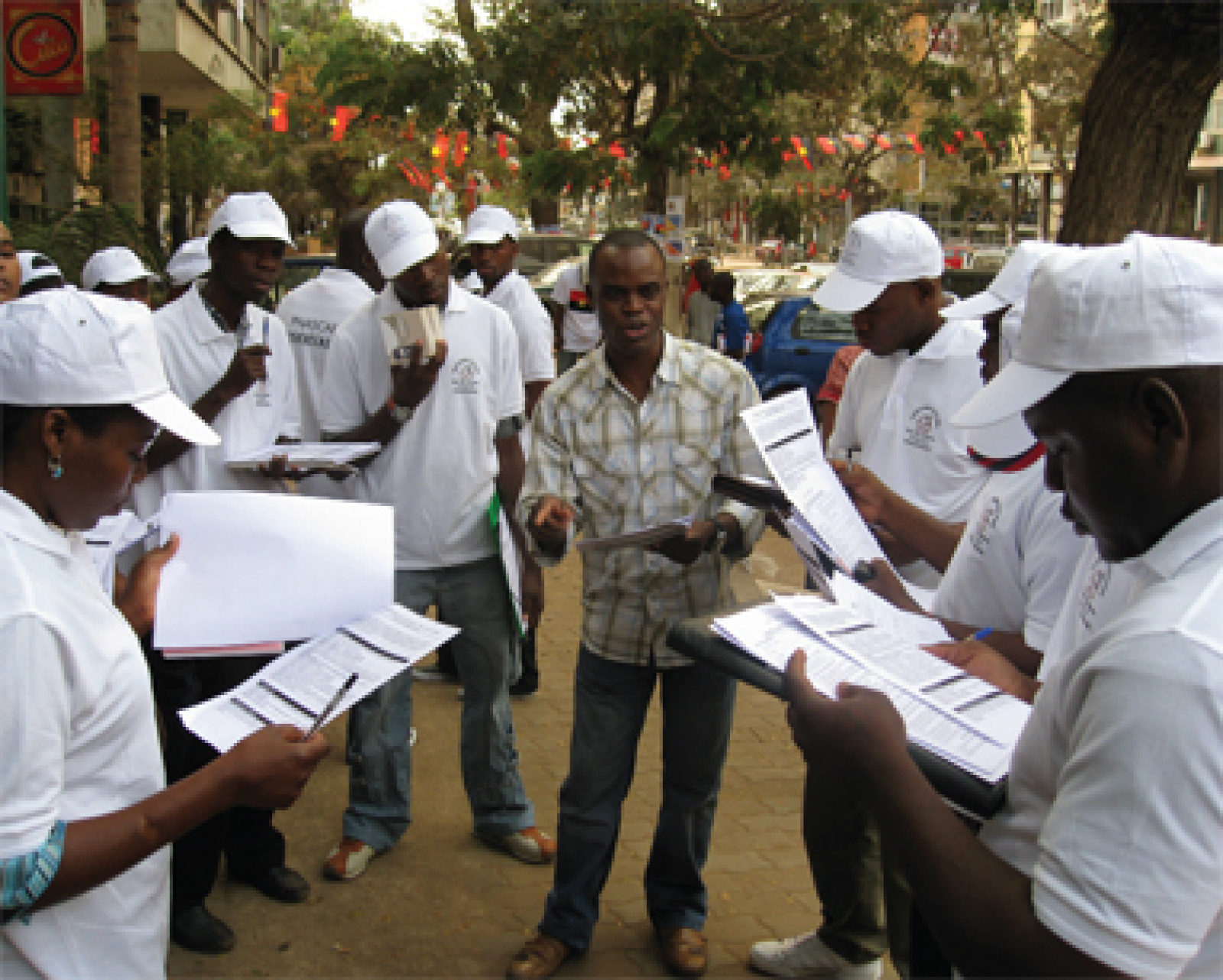
SHARE
ISSUES
Editor's Note: Merloe's article was republished on Feb. 8, 2016 by the National Endowment for Democracy as a book. The collection of essays is titled: Authoritarianism Goes Global: The Challenge to Democracy, edited by Larry Diamond, Marc F. Platner and Christopher Walker.
Authoritarian push-back against democratic development is a significant challenge in today's world. The July issue of the Journal of Democracy shines a light on this challenge and includes an article by Pat Merloe, NDI's senior associate and director of election programs.
The article, titled “Election Monitoring vs. Disinformation,” confronts the battle for control of the narrative about the character of elections in autocratic states. It focuses on the challenge posed to credible citizen election monitors and international observers by authoritarians who deliberately derail the democratic process and attempt to mislead citizens and the international community about their electoral corruption.
Merloe has more than 30 years of experience in public policy advocacy and promoting human rights, government accountability and citizen empowerment. He has participated in over 150 NDI missions in 65 countries. In a recent post for the NDI DemocracyWorks blog, Merloe asserts that firm determination, democratic learning and innovation is required to face a “democratic recession” -- a term popularly used to describe restraints that democratic development has faced in the last decade. Among his previous publications are Promoting Legal Frameworks for Democratic Elections and a chapter on human rights and elections in International Election Principles: Democracy & the Rule of Law. A selection of his publications, congressional testimony and speeches are listed here.
In “Election Monitoring vs. Disinformation,” Merloe describes electoral transparency as “absolutely and inescapably fundamental to genuine elections” because citizens not only have a right to honest elections, they have a right to know whether their elections are authentic. Credible citizen election monitors, international observers, media and contestants must be able to witness key aspects of election processes and have timely access to electoral data to assess and report their findings. Otherwise, citizens are unable to verify official pronouncements or cries of fraud.
Autocrats subvert democratic elections by infringing on the political rights of their opponents and voters, hindering monitors, and spreading disinformation through state-controlled media, government-backed election monitors, and favorable or naive international voices. Merloe identifies the use of “zombie” election monitors, or government-backed monitors whose purpose is to confuse and obscure credible monitoring efforts with fake narratives about the election process.
Merloe stresses that identifying the array of tactics used by autocrats to sabotage elections is important for exposing electoral misconduct and safeguarding electoral integrity. He cites 2013 elections in Azerbaijan, Zimbabwe and Venezuela as recent examples of authoritarian meddling in the democratic process.
Citizen election monitors and international observers are responding to authoritarian shifts by organizing around ethical principles and effective monitoring techniques to ensure accurate and impartial election analysis. International support for electoral integrity defenders and adherence by governments to electoral integrity norms, including for open election data, will help tip the scales in favor of credible elections. Merloe addresses the broader context, saying, “Genuine stability, like democracy, is about much more than elections, but both depend on elections being credible.”
Published on July 27, 2015


